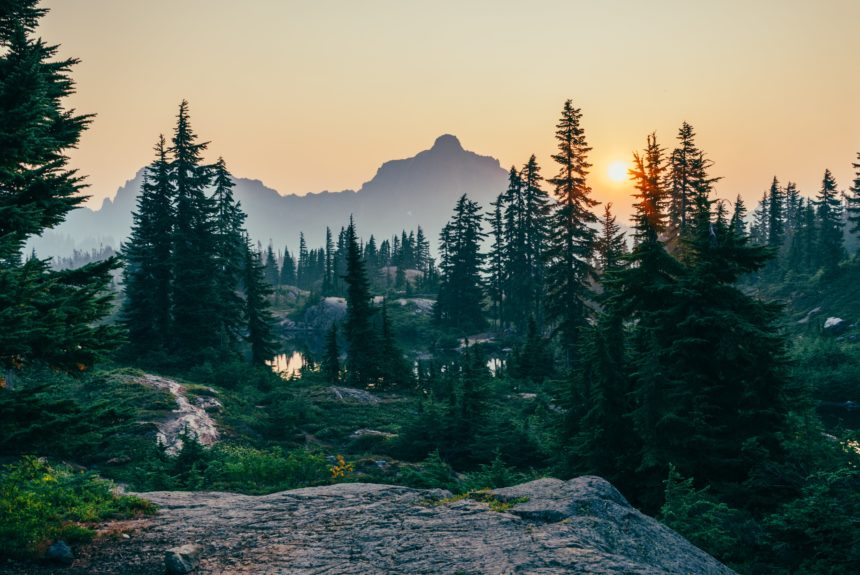The debate around addressing climate change is more about politics than energy and science
By Todd Johnston
Whenever politicians discuss climate change, there is a lot of talk about science. The problem is that the actual conversation never ends up being very scientific. It always ends up being political, and if I were to list the number of problems made better by politics, what would follow is a blank page.
Politics is how we end up with promises to reverse the entire history of earth’s changing climate if only we relinquish our economic and energy freedom to politicians — who seem focused more on social justice and increasing the cost of energy than on protecting our natural ecosystems.
The longer we allow the false promise of a silver-bullet solution to dominate the conversation about climate change, the longer we will be stuck talking past each other. Two decades of international climate conferences should be proof enough.
We should instead be harnessing one of the most powerful tools at our disposal: nature’s fantastic resilience.
It’s not a big and shiny idea, and no one is promising that it’s the solution to the entire problem, but it’s something we can do right now. Harnessing the power of nature can mitigate the impact of climate change, make our communities more resilient, strengthen our agricultural system, and make our air and water cleaner. At the very least, it should be the basis where we start.
So, what does it mean to use the power of nature? One example is restoring coastal barriers, like wetlands and salt marshes, to better protect coastlines against storm surges that threaten to become more frequent and more potent as a result of climate change. One study estimates that coastal barriers from Maine to North Carolina reduced flood heights and reduced the amount of damage by an estimated $625 million.
Rebuilding Coral reefs is another way to keep our environment healthy while limiting the damage from a massive storm surge. One study estimated that without coral reefs, the damage inflicted by a 100-year flood event would increase by 91 percent.
Healthy mangroves keep carbon dioxide trapped below the surface of the water, preventing the greenhouse gas from escaping into the atmosphere and contributing to a warming climate. Mangroves make up as much as 14 percent of our oceans’ carbon sequestration. Ensuring these remain healthy and undisturbed should be a key priority for climate policymakers.
Green roofs and walls, where vines and climbing plants grow into supporting structures, are another nature-based tool that can help protect communities from climate change in a variety of ways. They can be used to mitigate prolonged heat waves, collect stormwater, and reduce pollution.
Forest management is another critical tool in keeping our natural habitats healthy. We’ve all witnessed the horrible devastation of wildfires that have torn through California, destroying homes and businesses. In just the past two years, more than 13 million acres of land have been ravaged by fires. Munich Re, the world’s largest reinsurance firm, indicated that the 2018 California wildfires were responsible for $24 billion in losses. Active forest management not only keeps forests healthy and less susceptible to massive wildfires, but it also boosts rural economies by providing a sustainable source of timber.
Nature-based infrastructure projects can not only improve the resiliency of our communities to climate change but also buy us more time to advance the cutting-edge technologies needed to transition to a low-carbon economy. Better storage, carbon capture, advanced nuclear, hydrogen – there are plenty of potentially disruptive technological innovations that need time to mature.
No one solution can do it all. We need to begin to start doing those things today that we know can make a measurable difference. Politicians argue that an incremental approach isn’t enough. But those same politicians have little to show for their insistence on an economy-wide approach.
If we’re serious about reducing global emissions rapidly, then nuclear energy must be part of any climate change plan. Whether it’s conventional large-scale nuclear power or smaller advanced reactor technologies now moving toward commercialization,
That includes a sensible, de-politicized conversation about how to address the backend of the nuclear fuel cycle. It should also include investment in carbon capture technology and other ways to use our conventional energy resources better.
The sky is not falling. We do not need to restructure our entire economic system, nor can we tax our way to a solution. What we can do is harness the power of nature and combine it with the power of technology. Such an approach can be tailored to fit the specific needs of individual communities or regions, not force a one-size-fits-all solution down from the federal government.
Climates are continually changing, and nature is always adapting. We can accept that and begin to do what is achievable today, or we can continue to waste time attacking the energy resources that have created so much prosperity and trying to make them more expensive.
We cannot stop the developing world from using the least expensive and most abundant energy resources to improve their lives. To think otherwise is foolhardy. What we can do is make our communities more resilient while we advance the development and deployment of the technologies needed for deep de-carbonization.
Cooperation on real-world solutions or partisan finger-pointing, it’s our choice. What happens next will tell us who wants to work toward solutions and who wants to win an election.
Todd Johnston is vice president of policy at ConservAmerica. Todd previously served at the Virginia Department of Environmental Quality and on committees with jurisdiction over environment and energy issues in the U.S. Senate and House of Representatives. He has also represented various industries on policy and regulatory compliance matters.
The views and opinions expressed are those of the author’s and do not necessarily reflect the official policy or position of C3.
